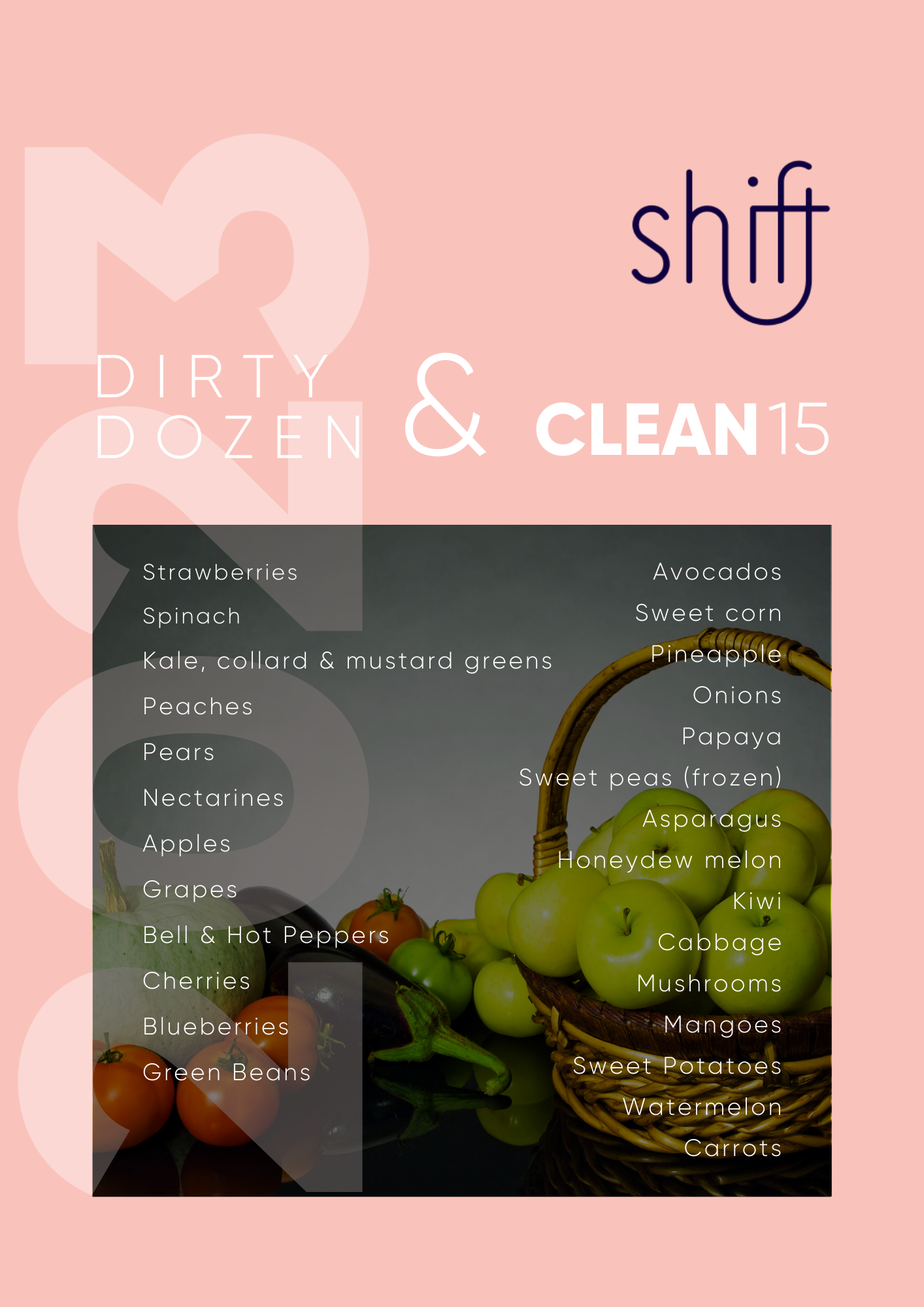This year’s Dirty Dozen and Clean 15 has just been released! The Dirty Dozen and Clean 15 is an easy-to-use shopper’s guide to high pesticide versus low pesticide fruits and vegetables.
In simple terms, the “dirty dozen” details some of the most highly sprayed crops, whereas the “clean 15” are less likely to be sprayed due to various reasons. This guide was established to help shoppers like you budget for buying organic where possible, and if non-organic must be purchased, at least it can be from the “clean 15” list.
The list was established in the USA and is updated every year, and it has significance to Australian produce. It is important to note that this list is mainly to do with pesticide and chemical usage on crops, rather than GMO (genetically modified) crops, such as corn.
The 2023 Dirty Dozen are:
- Strawberries
- Spinach
- Kale, collard, and mustard greens
- Peaches
- Pears
- Nectarines
- Apples
- Grapes
- Bell & Hot Peppers
- Cherries
- Blueberries
- Green Beans
This year’s Clean 15 are:
- Avocados
- Sweet corn
- Pineapple
- Onions
- Papaya
- Sweet peas (frozen)
- Asparagus
- Honeydew melon
- Kiwi
- Cabbage
- Mushrooms
- Mangoes
- Sweet Potatoes
- Watermelon
- Carrots
For more information, and to download your handy shopping guide of the lists, visit the EGW website here.
Want to hear more?
Listen to Episode 7 of Season One of our world-renowned podcast The Shift. Titled ‘On our way out: the decline of our species Part 1‘ this episode looks at how environmental toxins can affect your health – and what you can do to reduce their impact.




